Technologies
TechnologiesIn our development process we use:

React
This popular JavaSсript library is used for creating user interfaces in such big companies as Facebook or Instagram. React is extremely handy for scalable apps with complex UI with a constantly changing or expanding the structure.
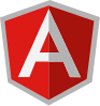
Angular
Open-Source JavaScript framework provided by Google was worked out to build single-page web apps. Angular has one of the greatest web development communities, a whole stack of ready-to-use templates and libraries. The framework is built on the MVC architecture, which enables to easily divide the logic of major web apps.

Meteor
It is a JavaScript framework that allows you to develop front-end and back-end sides of your project. Meteor makes rapid prototyping possible and produces cross-platform (Android, iOS, Web) code. It is good for both small and middle-sized applications.

D3
It is a JavaScript library for data handling and visualization. Perfect for creating stylish graphs and diagrams, adding “wow” effects on a page. If you are going to use animation or dynamics in your app, D3.js is what you need.
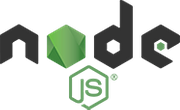
Node.js
A programming platform based on the V8 engine. It functionally turns overspecialized JavaScript into a commonly-used language. It is perfect for building real-time apps – for example, chats, real-time user panels, online. games etc.

Express.js
Express is a complex and flexible framework for Node.js that provides a great variety of functions for mobile and web applications development. It extremely simplifies the development of a server API and enhances cooperation with databases.

Backbone
A JavaScript framework controlling the app state change. It is generally used together with React.js or any other view library. Perfect for developing complex JavaScript apps with a wide range of opportunities.

KOA.js
It is a framework by Express.js for building a server part for Node.js apps. The framework is easier and handier to use than Express.js. It enables to reduce the intensity of callbacks in a code, which improves error handling.

Sails.js
It is a framework for developing Node.js apps. It was built on the MVC coding pattern and resembles Ruby on Rails in its approach. The framework includes an ability to automatically form API according to the data models. It also supports methods preventing standard hacker attacks.

jQuery
It is a JavaScript library specializing on work with a webpage DOM and providing a cross-browser app support. Its advantages are in the creation of various visual effects and support of numerous JavaScript plugins.

HTML
HTML5 is a markup language used for structuring and presenting content on the World Wide Web. It improves and expands a page markup compared to the outdated HTML4.

CSS
It is a new standard of formatting HTML documents that expands the possibilities of the previous standard – CSS 2.1. Shades, animation, rounding-offs have been added, to name just a few. It is used for describing and designing your webpage written in HTML and XHTML.

Elastic Search
A free search server based on Apache Lucene. It shows a high speed of full text query handling, an opportunity to move a system to the cloud, as well as easy-to-use characteristics.

AWS
A set of cloud service platforms provided by Amazon. It includes file hosting, distributed data storage, server hosting, providing of computing capacities. The set enables to decrease project maintenance costs, provide web server load balancing, etc.
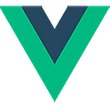
Vue.js
It is an open-source progressive JavaScript framework capable for building user interfaces.Vue is able to power advanced single-page applications.

Django
Django is a high-level Python Web framework that encourages rapid development and clean, pragmatic design. Built by experienced developers, it takes care of much of the hassle of Web development, so you can focus on writing your app without needing to reinvent the wheel. It’s free and open source.
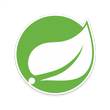
Spring
The Spring Framework provides a comprehensive programming and configuration model for modern Java-based enterprise applications - on any kind of deployment platform. A key element of Spring is infrastructural support at the application level: Spring focuses on the "plumbing" of enterprise applications so that teams can focus on application-level business logic, without unnecessary ties to specific deployment environments.
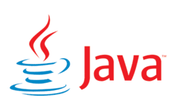
Java
Java is a general-purpose computer-programming language that is specifically designed to have as few implementation dependencies as possible. Compiled Java code can run on all platforms that support Java without the need for recompilation. Java allows you to play online games, chat with people around the world, calculate your mortgage interest, and view images in 3D, just to name a few.

jOOQ
jOOQ claims to be the easiest way to write SQL in Java. It's a light database-mapping software library in Java that implements the active record pattern. Its purpose is to be both relational and object-oriented by providing a domain-specific language to construct queries from classes generated from a database schema.

Hibernate
Hibernate provides a framework for mapping an object-oriented domain model to a relational database. Hibernate handles object-relational impedance mismatch problems by replacing direct, persistent database accesses with high-level object handling functions.
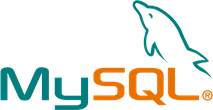
MySQL
MySQL is the world's most popular open source database. Whether you are a fast growing web property, technology ISV or large enterprise, MySQL can cost-effectively help you deliver high performance, scalable database applications.

MongoDB
MongoDB is a free and open-source cross-platform document-oriented database program. MongoDB stores data in flexible, JSON-like documents, meaning fields can vary from document to document and data structure can be changed over time. The document model maps to the objects in your application code, making data easy to work with.

React Native
React Native lets you build mobile apps using only JavaScript. It uses the same design as React, letting you compose a rich mobile UI from declarative components.
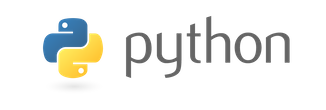
Python
Python is an interpreted high-level programming language for general-purpose programming. It has a design philosophy that emphasizes code readability, notably using significant whitespace. It provides constructs that enable clear programming on both small and large scales. Python features a dynamic type system and automatic memory management.

Flask
Flask is a micro web framework written in Python and based on the Werkzeug toolkit and Jinja2 template engine. It does not require particular tools or libraries. Flask supports extensions that can add application features as if they were implemented in Flask itself.

Bottle
Bottle is a fast, simple and lightweight WSGI micro web-framework for Python. It is distributed as a single file module and has no dependencies other than the Python Standard Library.

Linux
Linux is a family of free and open-source software operating systems based on the Linux kernel,[11] an operating system kernel first released on September 17, 1991 by Linus Torvalds.[12][13][14] Linux is typically packaged in a Linux distribution (or distro for short).
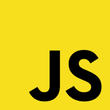
JavaScript
JavaScript (JS) is a lightweight, interpreted or JIT compiled programming language with first-class functions. Most well-known as the scripting language for Web pages, many non-browser environments also use it, such as node.js and Apache CouchDB. JS is a prototype-based, multi-paradigm, dynamic scripting language, supporting object-oriented, imperative, and declarative (e.g. functional programming) styles.
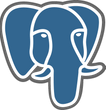
PostgreSQL
PostgreSQL, also known as Postgres, is a free and open-source relational database management system (RDBMS) emphasizing extensibility and technical standards compliance. It is designed to handle a range of workloads, from single machines to data warehouses or Web services with many concurrent users. It is the default database for macOS Server and is also available for Linux, FreeBSD, OpenBSD, and Windows.
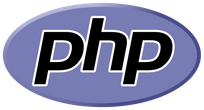
PHP
PHP is mainly focused on server-side scripting, so you can do anything any other CGI program can do, such as collect form data, generate dynamic page content, or send and receive cookies. But PHP can do much more.
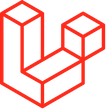
Laravel
Laravel is a framework for creating web applications with an easy to use syntax. The idea behind Laravel is that it makes common development tasks easy such as routing, authentication, sessions, and caching.
